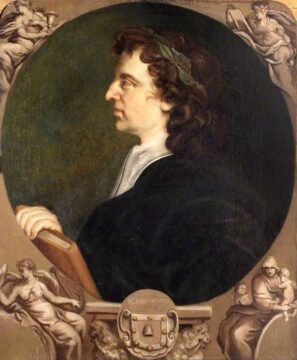Ed Simon in The Millions:
 As a sophomore in college, I completely earned the C+ that I received in a survey course called “British Literature.” There could be no blaming of the professor on my end, no skirting responsibility for those missed assignments, no excuse for having confused Belphoebe for Gloriana in Edmund Spenser’s The Faerie Queene on multiple choice tests. In the spring semester of 2004, I was more concerned with Yuengling than I was with Geoffrey Chaucer or the Pearl Poet, so I fully deserved the middling grade that I got.
As a sophomore in college, I completely earned the C+ that I received in a survey course called “British Literature.” There could be no blaming of the professor on my end, no skirting responsibility for those missed assignments, no excuse for having confused Belphoebe for Gloriana in Edmund Spenser’s The Faerie Queene on multiple choice tests. In the spring semester of 2004, I was more concerned with Yuengling than I was with Geoffrey Chaucer or the Pearl Poet, so I fully deserved the middling grade that I got.
Yet that class was also the site of an important discovery: the stern, austere, blind Puritan bard John Milton. For the past two decades, I’ve read and reread Milton, written about Milton, taught Milton, thought about Milton. I don’t know if I’m any closer to really understanding his greatest work, for that magisterial 1667 poem Paradise Lost is a cosmos unto itself, like Dante’s The Divine Comedy or Melville’s Moby-Dick, but I know that my life wouldn’t be as rich without it.
“Of Man’s first disobedience, and the fruit / Of that forbidden tree whose mortal taste / Brought death into the world, and all our woe,” intones the poet in Paradise Lost, still resonating across nearly three-and-a-half centuries, a writer who even when he is dry or slow (and he can be dry and slow) still can turn a phrase and deploy it to stunningly dramatic effect in this epic tale about Satan’s rebellion against God in Heaven and the subsequent fall of humanity and all Creation.
More here.
